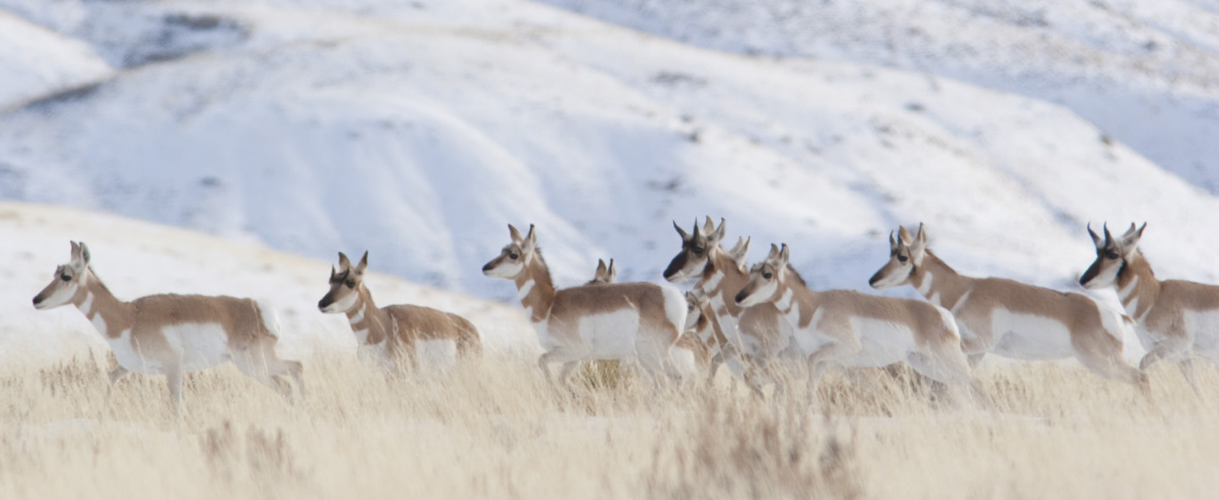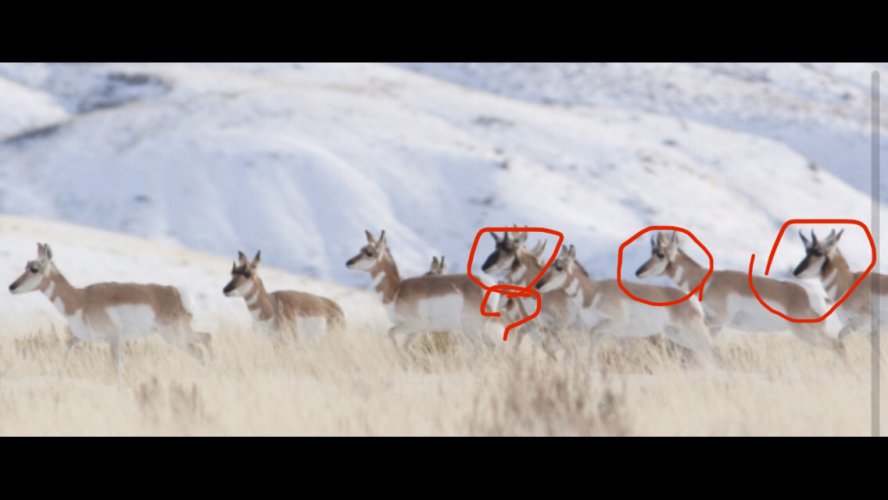undercover
Well-known member
I made my first attempt at antelope hunting this past October in Wyoming. Small unit, lots of tags, very little public, Doe/fawn. I had an opportunity at the first public piece of ground within 5 minutes. In the crosshairs at 240yds, estimated 30-40 mile an hour cross wind, no shot taken. 2 animals staring at me head on. I also didn’t pull the trigger because I swear I saw dark ish cheek patches but no horns. My first and only encounter so please be nice. Hunt was over a day later as wife blew out her knee. Anyway I got to thinking tonight as I’m narrowing down some units for next fall for elk deer antelope and what I think will get me to Wyoming. The WG&F home page has antelope with a mountain esque backdrop. Help me identify each gender from left to right as seen by their face. I believe there are 9 and possibly ten animals. Furthest left(doe) second from left (doe with horns, no black cheek patch?) third from left(doe) fourth from left (young buck) fifth from left (doe) sixth from left) young buck) and last antelope far right (buck). 2 maybe three more in the back behind the group. If you see anything different could you please explain what I am not seeing?
Blessings
Brian
Blessings
Brian






